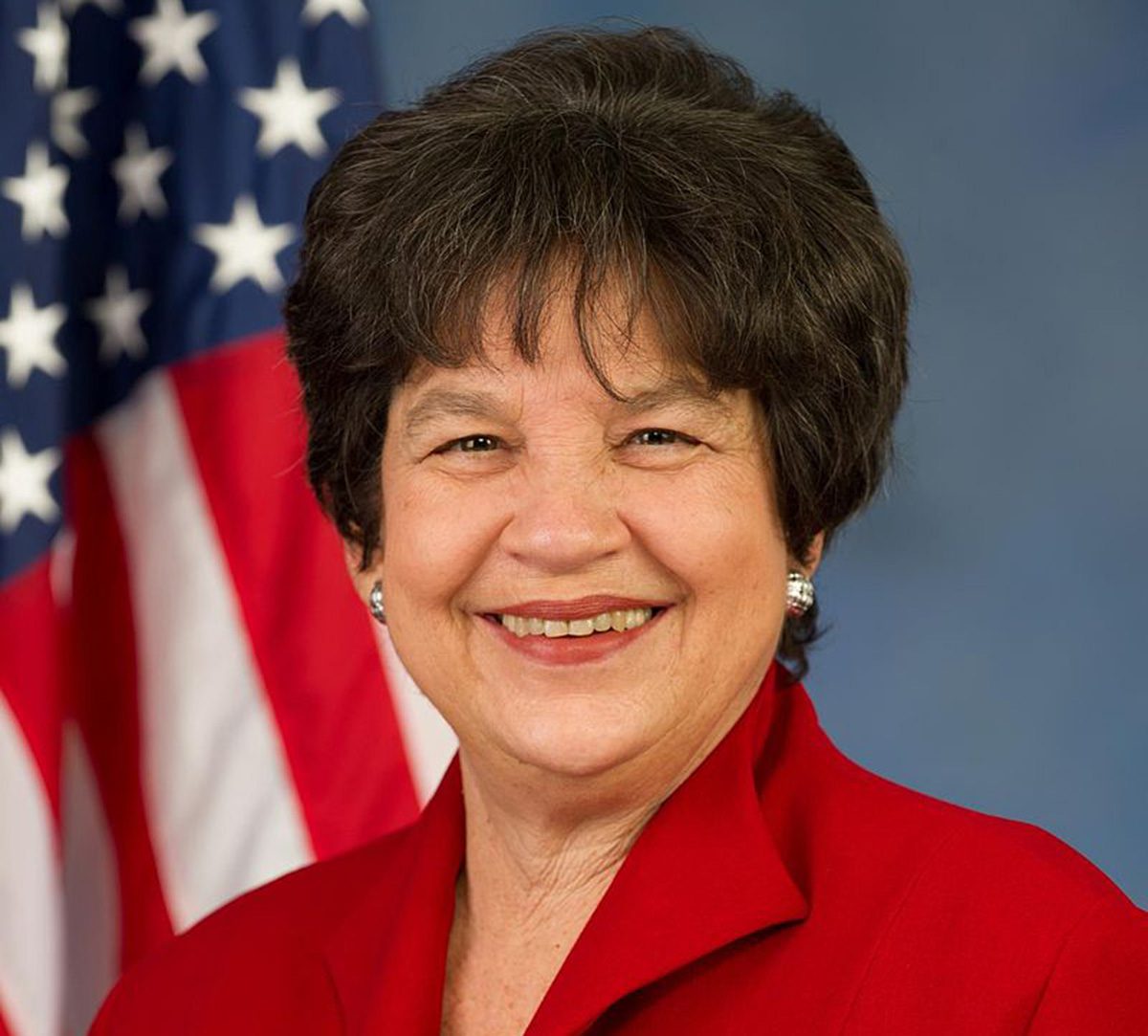Could Florida Atlantic University be home to Donald Trump’s presidential library?
NBC News reported over the weekend that Trump allies are scouting area locations, and that possible sites include FAU’s Boca Raton campus and Florida International University in Miami. Gov. Ron DeSantis reportedly met with Trump last weekend in Palm Beach to discuss the topic.
This news came as Adam Hasner on Monday officially became FAU’s president. Hasner, who spent eight years as a Republican member of the Florida House, was the governor’s choice. FAU trustees chose Hasner, who had no experience in higher education, over two finalists with three decades of accomplishments in the field.
According to NBC, FAU has offered to donate land for the library. Trump reportedly wants a hotel to be part of the project. One supposed factor in FAU’s favor is that the library would be in Trump’s home county.
FIU, though, is near Trump’s golf resort in Doral. FIU’s president also is a recent DeSantis choice—former Lt. Gov. Jeanette Nunez. At meeting last month, FIU trustees installed Nunez as interim president after rejecting a contract extension for Dr. Kenneth Jessell, a career educator under whose leadership FIU had achieved the top performance score among state universities. There is little doubt that Nunez will get the permanent position.
NBC said Trump’s team also is looking at non-university locations in South Florida. The network quoted one GOP legislator as saying that picking FAU or FIU would make for hard feelings at the other.
Whatever the location, the Legislature is set to pass a bill that will strip local governments from any role in the library. If FAU is chosen, Boca Raton will have no say in the plans. FAU trustees would have to approve any donation of land.
New federal policies hit home
Policy debates in Washington can seem abstract, until policy changes become real. Boca Raton, Delray Beach and Palm Beach County are not part of those debates—such as they are. The potential effects, though, are becoming clearer.
Example: Uncertainty over the U.S. Department of Education.
The Wall Street Journal reported last week that Trump will sign an executive order asking Education Secretary Linda McMahon to begin steps to abolish the department. In practical terms, the order wouldn’t mean much. Only Congress could abolish the agency, and doing so would require 60 votes in the Senate; Republicans have just 53 seats.

But the Trump administration and congressional Republicans could gut the agency through spending cuts. The House’s proposed spending bill cuts $13 billion overall from the current federal budget. Heather Frederick is the Palm Beach County School District’s chief financial officer. She told me that the district receives about $300 million from the U.S. Department of Education. That amounts to roughly 10% of the district’s 2024-25 operating budget.
Three programs make up most of that $300 million, Frederick said. About $115 million goes for child nutrition— school breakfasts and lunches. Another $60 million goes to schools with large proportions of poorer students, to supplement their learning through the Title I program. And $48 million provides specialized learning for students with disabilities.
McMahon said of any order, “This is not a turn out the lights and walk out of the building.” But what if Washington cut all or part of what goes to states? “It would impact our ability to provide services to students,” Frederick said.
Any immediate impact likely would hit harder in Delray Beach, which has a higher proportion of underprivileged students than Boca Raton. But Boca Raton Elementary and J.C. Mitchell are Title I schools. So is Boca Raton Middle, like Carver Middle in Delray Beach. Atlantic High is a Title I school. No high schools in Boca Raton are in that category.
Voters already have approved a special sales tax to help fund the operating budget. The district likely could not count on the state making up the difference. Indeed, the Legislature seems intent on abolishing the property tax that is school districts’ main source of revenue.
Critics, most of them Democrats, say the real Republican goal is not merely the abolition of a federal agency but the abolition of public education. Superintendent Mike Burke has issued no statement, but he had Frederick’s job before getting the top spot. He knows what’s at stake.
Rep. Frankel hosts discussion on potential Medicaid cuts
So does U.S. Rep. Lois Frankel, D-West Palm Beach. Her district includes Delray Beach and West Delray. Last month, Frankel hosted a discussion on possible cuts to Medicaid.

The Congressional Budget Office said last week that Republicans can’t even begin to offset the extension of tax cuts for wealthy Americans and corporations without cutting social programs. Trump has said that he won’t cut Medicare, which leaves Medicaid.
Though most people think of that federal/state program as financing health care for poor Americans, Frankel pointed out that it does much more. Medicaid’s largest expense is nursing home care. According to Frankel, 58% of nursing home patients in Florida rely on Medicaid. Another 65,300 Floridians 65 and older get home health care through Medicaid, which keeps them out of more expensive nursing homes. About 77,000 are on the waiting list for such services.
Medicaid also provides health care for almost 40% of children in Florida, covers 42% of births, and covers services for almost 290,000 Floridians with disabilities.
Again, the Legislature likely would not make up any cuts, which would ripple through the regional health care economy. Florida remains one of just nine states not to expand Medicaid under the Affordable Care Act to the state’s working poor.
DDA and Delray Commissioners come to agreement on marketing for OSS

The Delray Beach City Commission and the Downtown Development Authority finally are aligned on the marketing of Old School Square.
At the Feb. 18 commission meeting, DDA representatives laid out the plan. Under a contract with the city, the DDA has been managing Old School Square’s Cornell Museum, amphitheater and fieldhouse since a previous commission ended the lease that the founding organization—Old School Square Center for the Arts—had held for more than three decades.
Much discussion has focused on “branding” and logos to support the campaign. Commissioners like the DDA’s new approach, which is to put out a call for local artists to create logos for the complex and the individual components, “each with its distinctive personality,” said DDA Director Laura Simon. The theme will be “A Legacy Through Local Art.”
After artists submit their entries, the public will choose the winners. Commissioner Rob Long spoke for his colleagues when he said, “I love this idea.” DDA representatives said the process will take between 18 and 20 weeks.
Questions remain regarding relationship between the city and OSSCA
Still unresolved, however, is the relationship between the city and Old School Square Center for the Arts. As Mayor Tom Carney and others have noted, Google searches for “Old School Square” still put the former operator’s website at the top.
The last commission wanted a role for the group. The March 2024 elections, though, installed a majority with different views. Last June, Old School Square Center for the Arts notified the city that it was declining any potential “partnership.”
More than 300 register for classes at Crest Theatre

The DDA also had wanted to run Crest Theatre. Instead, the city took over the arts classes that had been so popular.
According to a spokeswoman, the city has registered 328 students in two semesters since November for roughly 100 classes and workshops. The spokeswoman did not know how those figures compare with when Old School Square Center for the Arts was in charge.







